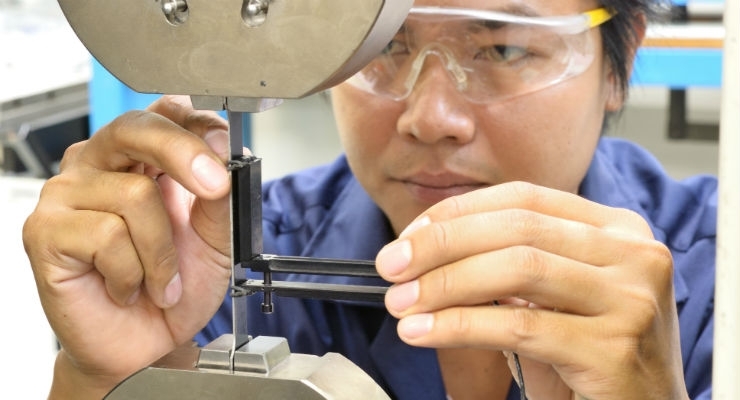

Strain analysis (or stress-strain analysis) is a test that provides powerful data to measure changes of a material under the effects of various loading conditions. This technique can be performed in both working environments by both physical and optical testing methods.

In a stress strain analysis, we apply a strain gauge to your product to determine the stresses that affect the part. Components can be subjected to static or dynamic loading or other environmental pressures such as load, torque, pressure, vibration or temperature. Our strain analysis services help you make informed decisions about your product's performance, including power, load limits, useful life, and operational performance parameters.
For products and materials in the Transportation, Defense, Aviation and Space sectors stress-strain analysis ve strain measurement services We offer. We support engineering designs, product validation, strain life predictions, and verification of analytical models (FEA and Dynamic Modeling), from individual components and subsystems to full-size products.
Our data collection and engineering support specialists work with you to create the most appropriate testing procedure by developing plans to evaluate your materials and products that meet engineering design criteria.
We can install and measure voltage meters in almost any condition, including low and high temperature environments and immersion in liquids. Our most advanced data acquisition systems allow measurement capabilities for more than 300 voltage measurements at the same time. Whether in the field or in one of our state-of-the-art labs, our experts can deliver complex, real-time data to manage complex and demanding projects.
Strain analysis and engineering services of EUROLAB simplify the testing and validation process, while combining the benefits of supporting multiple programs.
Our strain analysis services can offer your test program many benefits, including:
To get an appointment, to get more detailed information or to request an evaluation, you can ask us to fill in our form and reach you.